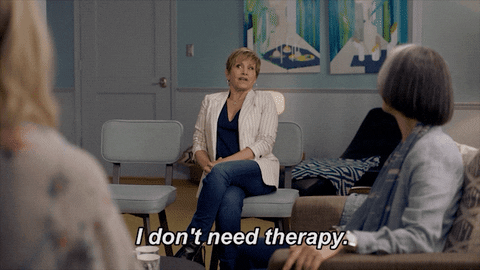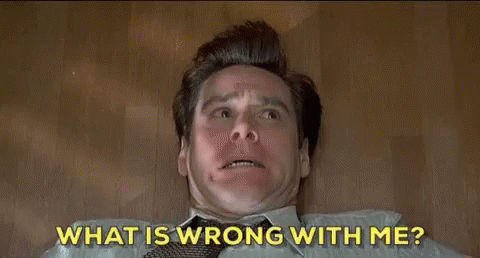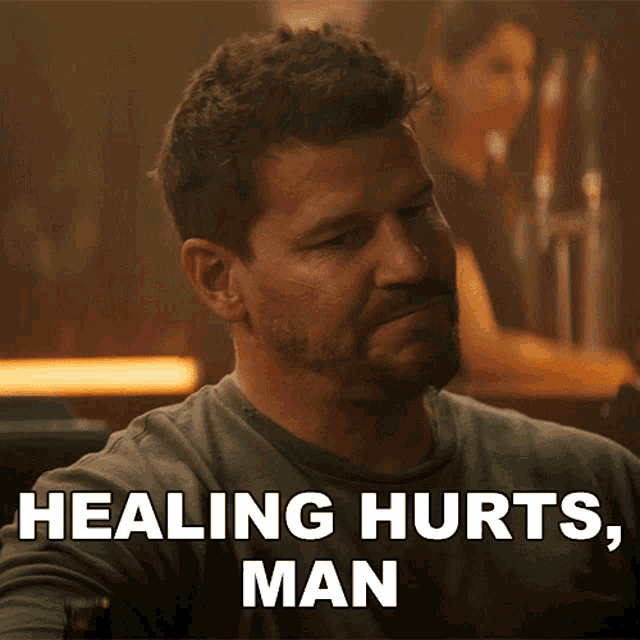You’re thinking about reaching out to a therapist… but you’re hesitating. You’ve heard some people say it’s really great… but you’ve also heard some not great things. Even though it’s much more common now for people to be in therapy, there are still a lot of myths about therapy or counseling.
As a therapist, and someone who goes to therapy myself, I’d like to take a moment to clear up some of the most common misconceptions about therapy that I hear. These misconceptions, or myths, can make people scared to start therapy. I get it – starting therapy can be scary, but I just don’t want any of the following myths to be the reason you are worrying about what therapy is like.
Therapy Myth #1: Only crazy people go to therapy.

Many of my clients have shared that one reason they put off reaching out to someone was because of the idea that you have to be really, really not good to go to therapy. That it only makes sense to go if you are in crisis or completely falling apart. That only people who are really “messed up” go see a therapist.
There is still a lot of stigma around mental illness in many families and cultures. It makes sense that people wouldn’t want to go to therapy if they think that it labels them in a certain way.
But the reality is that ALL kinds of people go to therapy.
Does everyone need therapy? No. What I always say is that some people at different seasons in their life might actually *need* therapy. But everyone, at any time, can benefit from therapy.
So if you’re stuck on asking yourself, “Do I really need therapy?” … I think that’s the wrong question to be asking. Instead, just ask yourself, “Do I think I could benefit from therapy at this point in my life?” If the answer is yes, then I encourage you to try it out!
Therapy Myth #2: I should be able to figure this out and handle it on my own.

I’ve heard some people get caught up in thinking about, “Oh, so many other people have it worse than me” or “my situation isn’t even that bad, therapists should focus on helping people who really need it, I can manage.”
This usually comes from ultimately not believing you *deserve* help. Lots of people struggle asking for help – they are usually always the ones caring for others. Sometimes this is in an effort to “earn” being cared for in return. Ironically, this belief that you are unworthy of care is actually a sign that you would really benefit from therapy. Because that belief is nonsense!
It doesn’t matter if someone else has it worse than you. If you are struggling in any way, you deserve to get the attention and care you need so you can be the person you want to be and live the life you really want.
Therapy Myth #3: If I go to therapy and don’t feel better after a couple sessions, then that would mean there is something seriously wrong with me.

I see people sometimes get this idea from movies or tv shows where a character will go to therapy once (maybe twice). And they have this BIG epiphany and then just move on with their life. No mention of therapy ever again.
That just isn’t realistic. The first one or two sessions are all about your therapist gathering information and you getting comfortable with them. So even people who have relatively straightforward concerns, or who just want to learn a few coping strategies or communication tools, will still likely need more than a couple sessions. And for more complex issues, to actually work through whatever is going on for you IS going to take some time. But that doesn’t mean you’ll be in therapy forever!
Therapy Myth #4: I’ll have to go therapy for years and years …or maybe even the rest of my life!

This is another common fear I see, especially from people who know someone who has been in therapy for years. First of all, many people achieve their goals for therapy in much less time. There are a variety of short-term, or what are called “brief” or “solution-focused” types of therapy that can provide significant benefit in just a few weeks of months.
Others are in therapy for much longer. Sometimes people are in therapy for a long time because it takes awhile to find the right therapist or the right kind of therapy to see the progress they were hoping for. Others have really complex, long-standing issues they are working through. In this case, it can take much more time to achieve deeper healing and lasting solutions. So they may be in therapy for a long time even if they are doing pretty well in their day to day lives.
As a therapist who specializes in longer-term therapy that works on those deeper issues, I can still say that you don’t need to be in therapy for weeks and weeks before you start feeling better. Also, even with the longer-term types of therapy, clients often will feel MUCH better, to the point that they don’t “need” therapy anymore, after several months. For some people it may take longer.
And so at that point, some people will graduate from therapy. Others will continue on with therapy but with more of a focus on ongoing personal growth rather than trying to fix a problem. Others will step back into what we call a “maintenance schedule” where they only come every other week, or maybe even once a month, to check in. This helps them feel confident they are staying on top of things, and can catch any new problems before something gets bad. There are also people who will graduate from therapy and then some point down the line, if something else comes up in their life, they go back to therapy during that season to work through that specific issue.
So the idea that you’ll have to go for any specific length of time is a definitely one of the common misconceptions about therapy. The bottom line is that how long you should go to therapy for is as long or as short of a time that feels right and is helpful for you.
Therapy Myth #5: Going to therapy is just paying someone to be your friend.
Your therapist is not your friend. First of all, ethically, therapists are obligated to make sure that boundary doesn’t get blurred. This is important to make sure that your goals and your healing stays the focus. But more than that, a therapist is very different from a friend.
I sometimes hear people say that if they have a really supportive partner or friend, they don’t need a therapist. From their perspective, they already have someone they can talk to about their feelings. If you have a great support system – people you feel comfortable talking to about what you’re going through and you don’t feel like you need to censor yourself or worry that they are going to judge you – that’s amazing!
But therapy isn’t just talking about your feelings. It isn’t just about having someone listen to you vent. Therapy involves a treatment plan. You are coming to a professional who is going to create a strategic plan to heal and work through whatever problems you’re dealing with right now. They should also help you learn the tools you need so you’ll know how to handle similar problems on your own in the future.

Therapy Myth #6: You will leave every therapy session feeling good.
The final misconception I want to address is one that can be a bit of a shock to learn is not true for someone who isn’t sure what to expect from therapy. The goal of therapy is actually not for you to just feel super happy at the end of every session.

In reality, good therapy gently agitates – I’ve heard some people describe it as putting your brain in a washing machine. I’ve also heard it described as untangling a giant ball of yarn one section at a time. Personally, I think it can feel like working on a really difficult puzzle. Some sections are still pretty easy, while others take forever. But OH…the moment when you finally find a certain piece and put it in place is SO SATISFYING.
So it’s important to know that therapy involves hard work, and it’s not uncommon to feel a little drained after a therapy session. But it should feel like recovering from an intense workout – you may feel tired or in pain, but in a good way. It definitely should NOT feel you just drank poison. And it shouldn’t make you so uncomfortable that you then have to use negative coping skills to manage.
Also, sometimes people experience feeling worse before they start feeling better. In my experience, things haven’t actually gotten worse. They are just more aware of difficult emotions or challenges in their relationships that they need to address.
So therapy is a process, and there are going to be ups and downs along the way. As long as the overall trajectory is up, then you are well on your way to experiencing all the benefits of therapy!
So those are the most common misconceptions about therapy that I hear from new clients as well as people in my personal life. If I missed any, please feel free to share in the comments! I hope this has been helpful for you if you’re still feeling on the fence about going to therapy.
If you are looking for a trauma therapist in Denver (or online for anyone living in Colorado or Georgia), you can learn more about my therapy practice here.
Leave a Reply
Contact
THANK YOU!
We received your information and we will be in touch soon. Please allow 48 hours response time.
